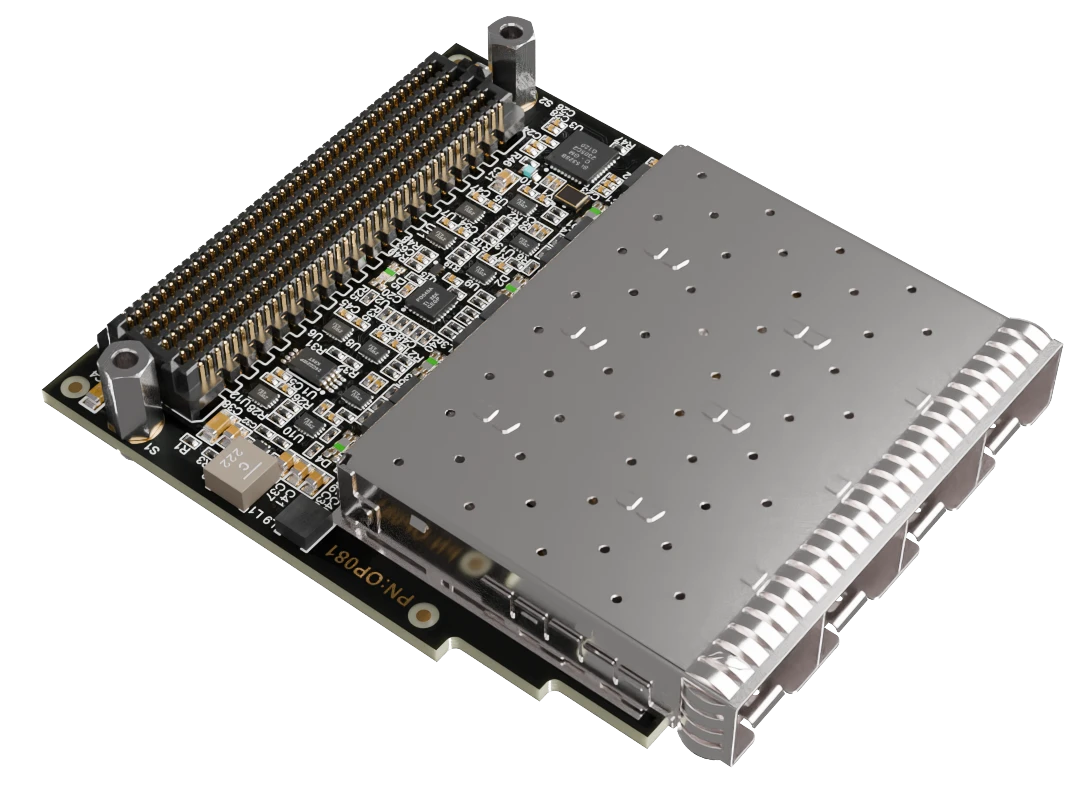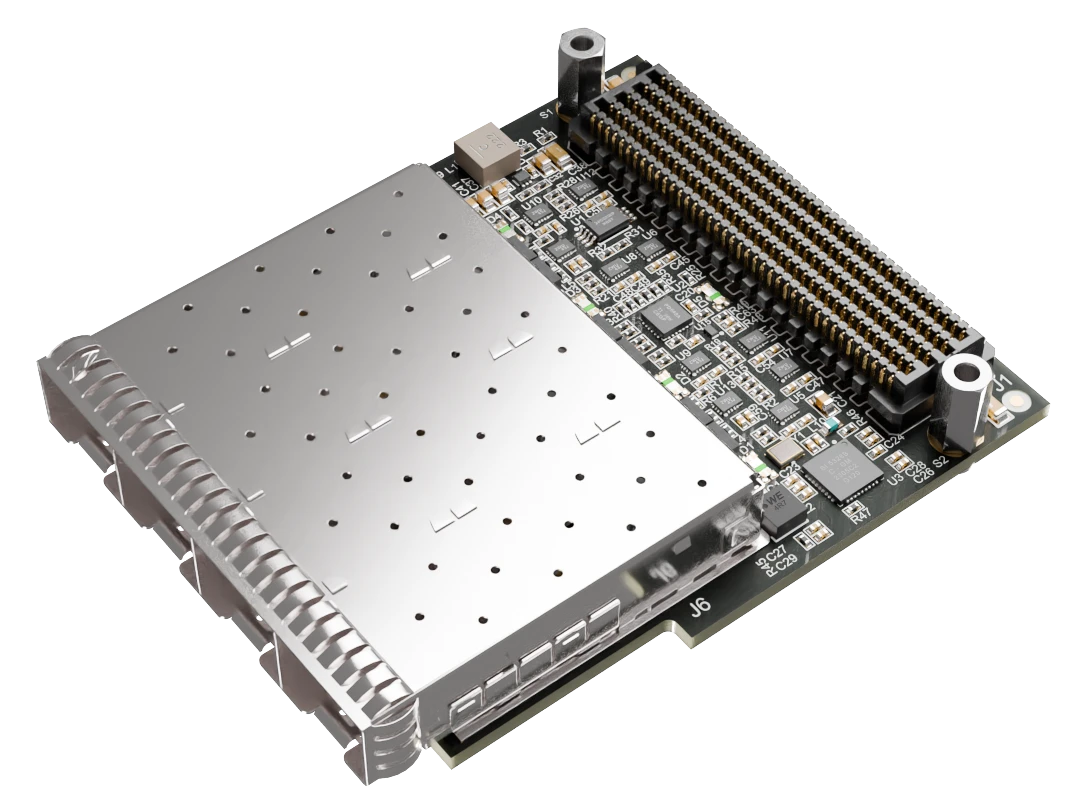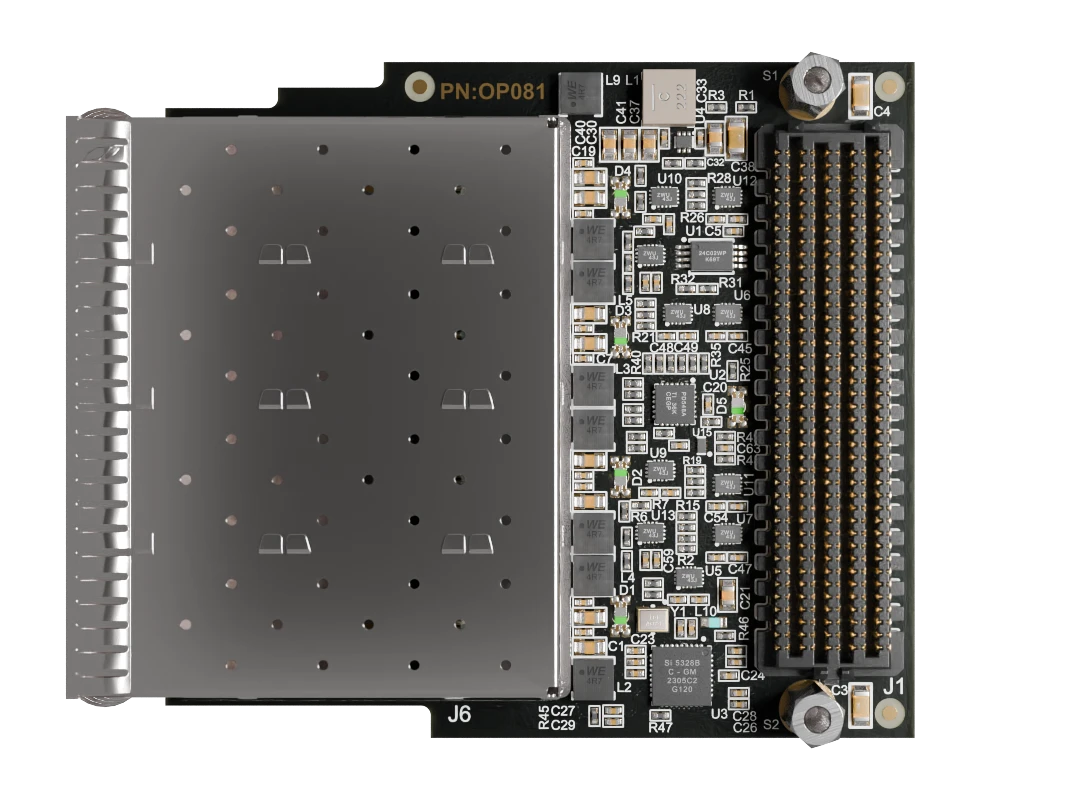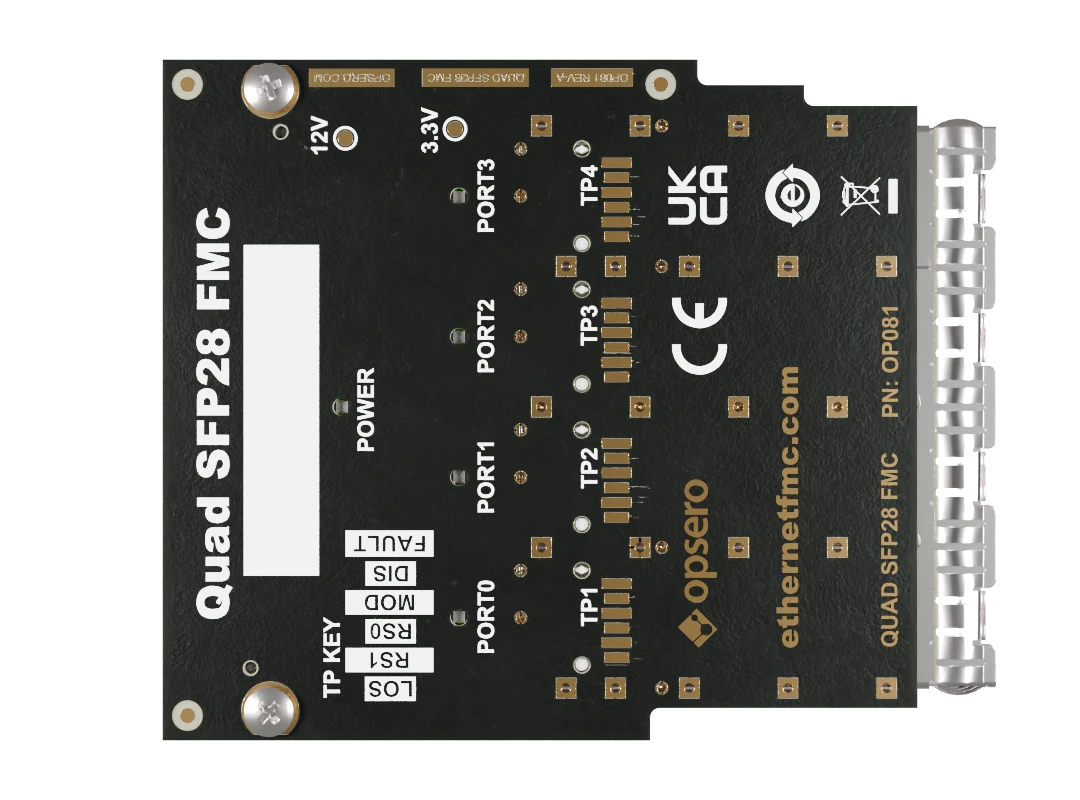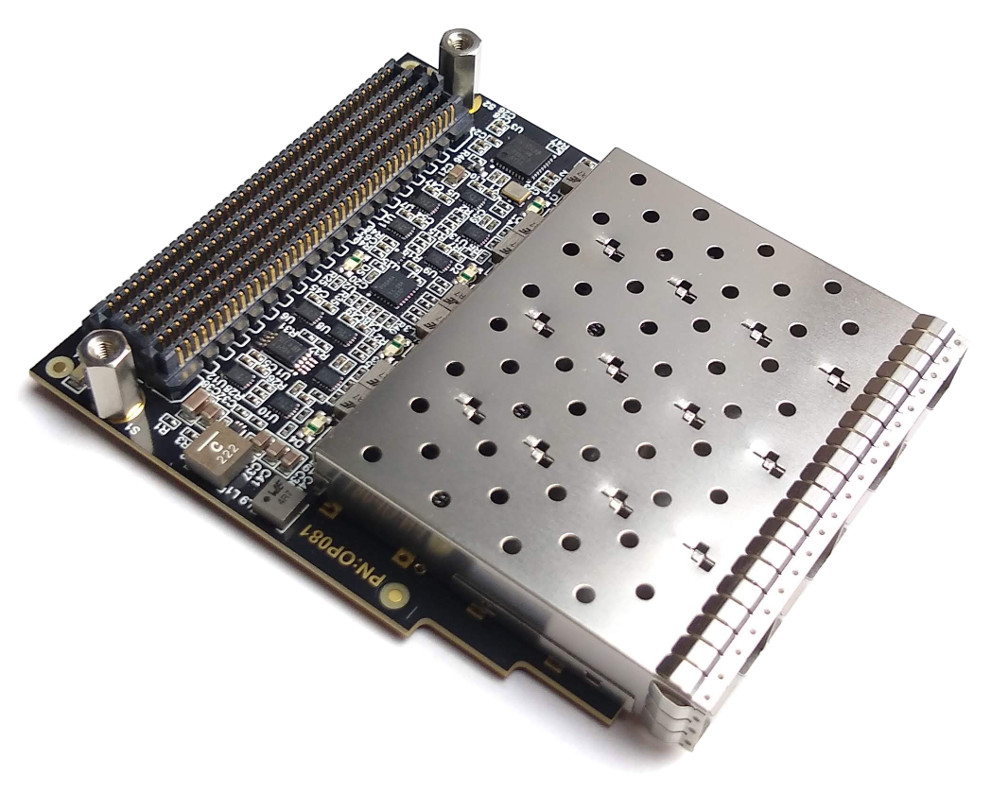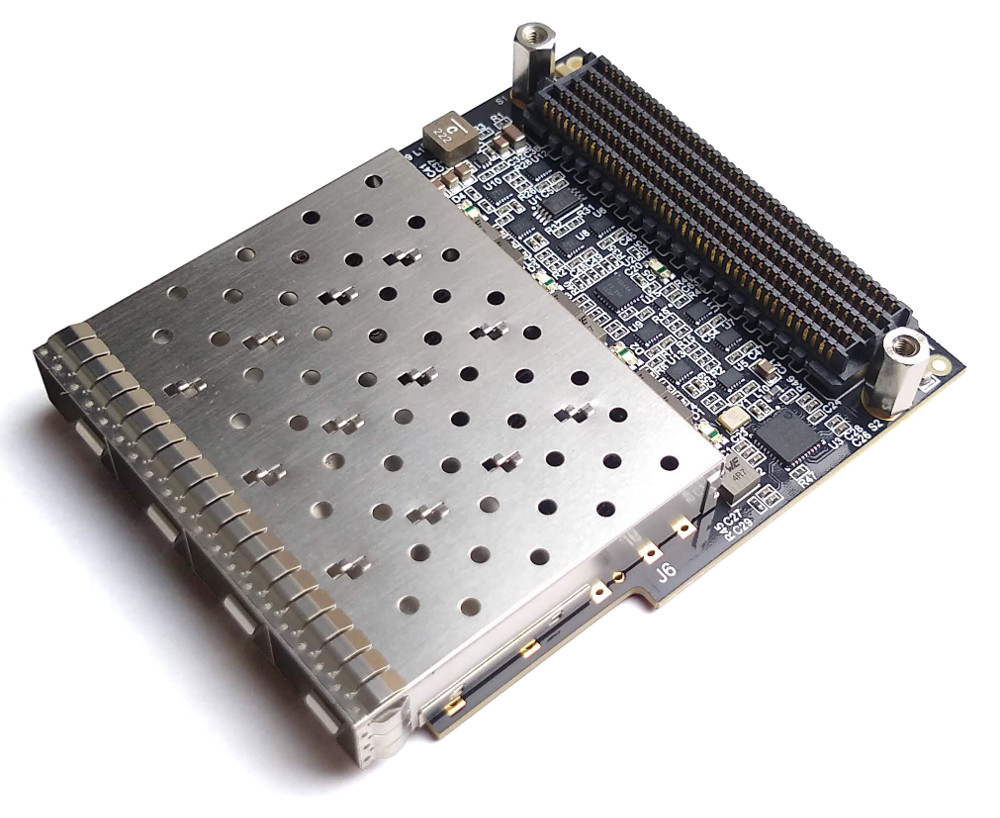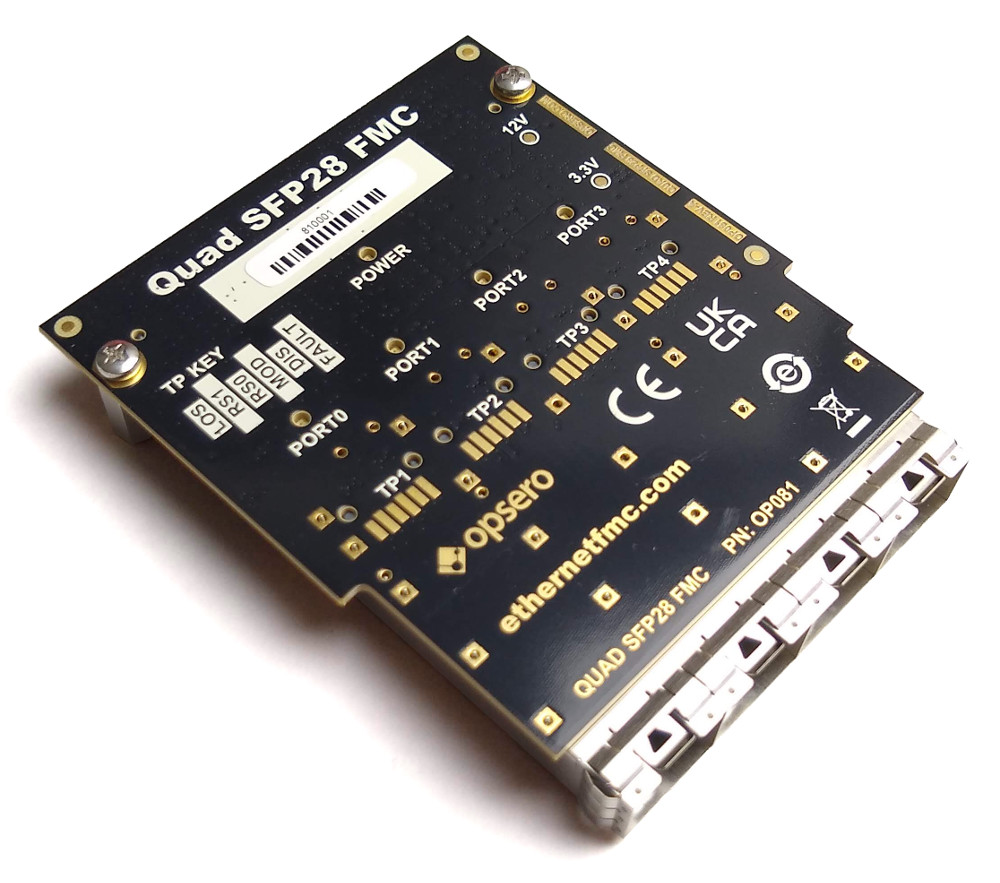| Part #: | OP081 |
| Description: | FPGA Mezzanine Card supporting up to four SFP, SFP+ and SFP28 modules |
| Vadj: | 1.2V-3.3V |
| Price: | USD $660.00 |
| HTS: | 8517.62.0090 |
| HS Code: | 8517.62.90 |
| ECCN: | 5A991.b |
| Origin: | Canada (CA) |
Quad SFP28 FMC
Where to buy
| Opsero Direct: (Ships from Canada) |
Currently out of stock. Please contact us for the most up-to-date lead-time. |
| Digi-Key: (Ships from USA) | Buy it from Digi-Key |
Description
The Quad SFP28 FMC is an FPGA Mezzanine Card designed to connect up to four SFP28 modules to your FPGA or MPSoC development board. It includes a jitter-attenuating clock multiplier, the Skyworks Si5328, which generates two precision clocks programmable from 8kHz to 808MHz. Additionally, the card supports the use of a recovered clock for Synchronous Ethernet applications. For more detailed information on the Quad SFP28 FMC, including datasheets, schematics and example designs, please visit the product website.
- 4x SFP28 slots compatible with SFP, SFP+ and SFP28 modules
- Jitter-attenuating clock multiplier (Skyworks Si5328) with support for recovered clock and SyncE applications
- HPC FMC compliant with VITA 57.1
- Supports a wide range of I/O voltages (VADJ): 1.2V-3.3V
- Reference designs for multiple FPGA and MPSoC development boards
- Straightforward tech support
Frequently asked questions
What FPGA I/O voltages (VADJ) are supported by Quad SFP28 FMC?
The Quad SFP28 FMC was designed with level translators to enable it to support any VADJ voltage in the range of 1.2VDC to 3.3VDC.
Is the Quad SFP28 FMC compatible with my FPGA board?
In general terms, the FPGA development board needs to have gigabit transceivers to use the Quad SFP28 FMC, and those transceivers must be connected to the DP0-3 pins of the FMC connector. It also needs to be able to supply a VADJ voltage between 1.2VDC to 3.3VDC. Please visit the product website for a list of compatible FPGA boards and detailed compatibility requirements.
Do I need any purchased IP to use the Quad SFP28 FMC?
Use of the Quad SFP28 FMC in Ethernet applications typically requires an IP for the MAC, such as the Xilinx Tri-mode Ethernet MAC (which is not free) or the OpenCores TEMAC (which is free). Some FPGAs have hard integrated TEMACs which generally don’t require a license to use. So the answer to this question depends on your FPGA and your choice of MAC.
